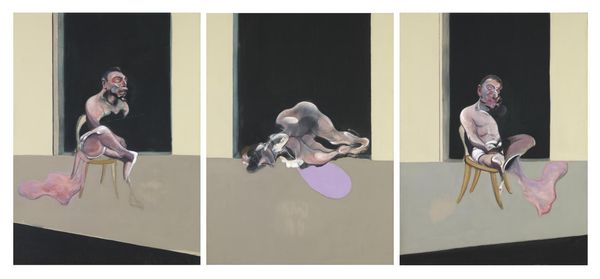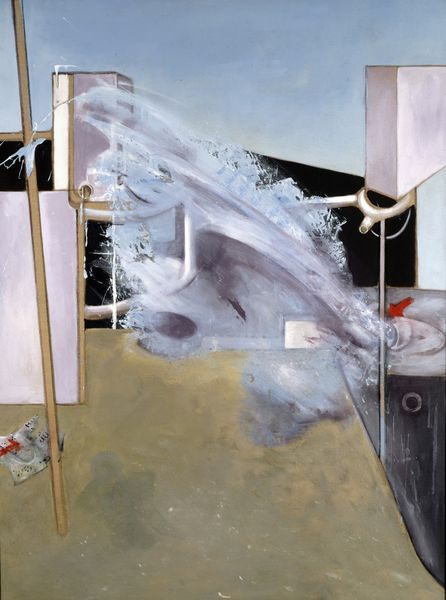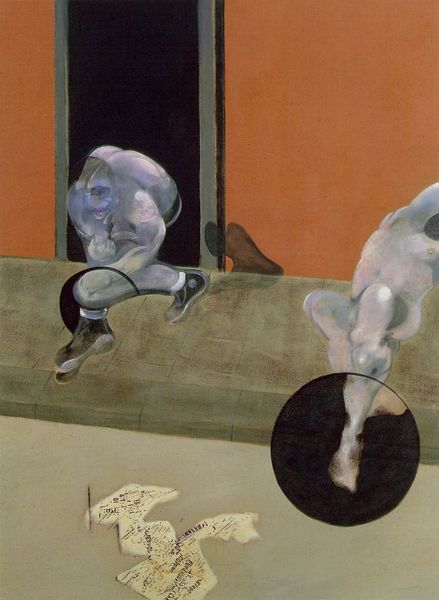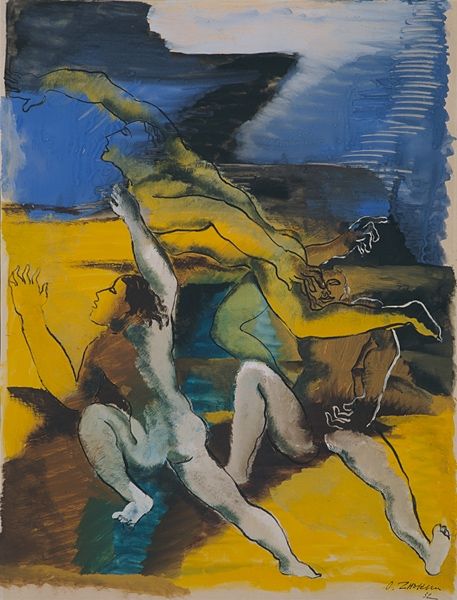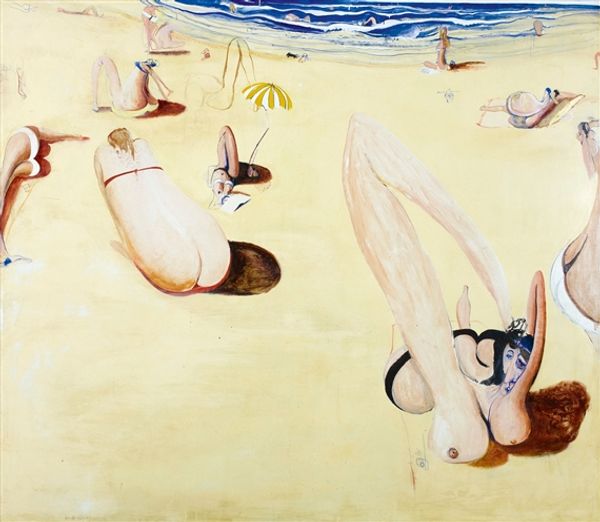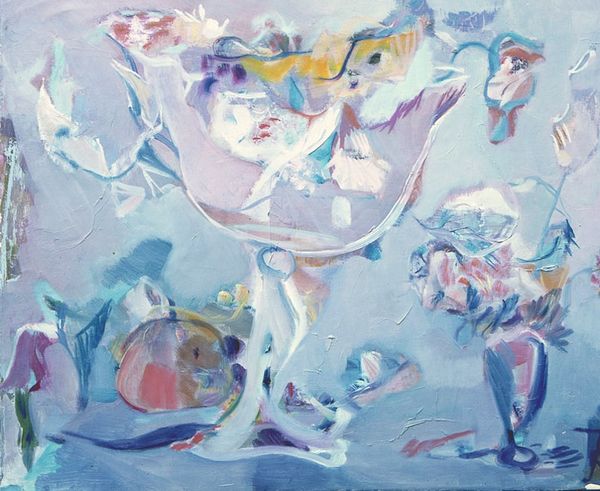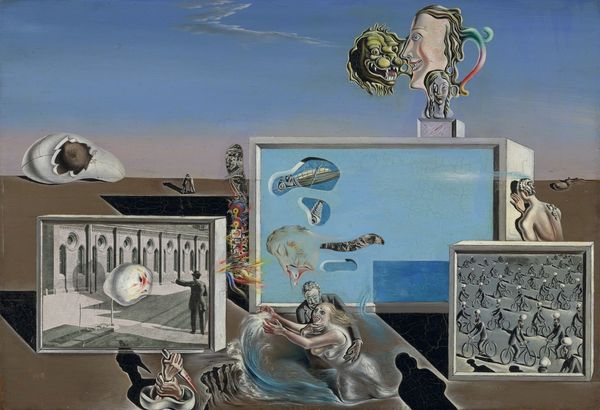
painting, oil-paint
#
portrait
#
abstract painting
#
painting
#
oil-paint
#
figuration
#
oil painting
#
neo expressionist
#
neo-expressionism
#
group-portraits
#
portrait art
Copyright: Francis Bacon,Fair Use
Curator: Francis Bacon's "Triptych May-June 1974," painted in 1977 using oil paint, presents a haunting and distorted figuration across three panels. The color palette feels muted, almost dreamlike, and the figures seem trapped in these isolating spaces. What do you make of it? Editor: It’s definitely unsettling. There's this strange juxtaposition of the beach setting with the distorted figures and the looming portraits in the background. The figures feel very vulnerable. I guess I'm curious how you interpret this work. What do you see beyond the immediate shock value? Curator: Bacon, throughout his career, used the triptych form to explore themes of violence, suffering, and the fragmented self, and of how that self exists in the modern world. This particular triptych was created following the suicide of his partner, George Dyer, which undoubtedly influenced the mood and content. Note how the central panel isolates a writhing figure flanked by almost voyeuristic portraits. How does the staging of this "scene" relate to broader themes of power, observation, and the inherent pain of existence that we're maybe not *supposed* to acknowledge? Editor: That’s helpful context. I see it more clearly now, as a sort of private grief made public. The beach setting, which usually implies leisure and relaxation, becomes a stage for intense emotional turmoil, observed and judged. Curator: Precisely. Bacon was deeply influenced by existentialist philosophy and, particularly, by thinkers who looked at performance theory. Think about how his subjects are simultaneously exposed and alienated. He’s prompting us to consider the roles we play and the internal battles we fight beneath the surface of our constructed identities. How does seeing it through this lens affect your understanding of contemporary struggles with mental health, social pressure, and the performance of self? Editor: It makes it even more relevant. It speaks to how the performance of daily life can mask deeper pain and the struggle to find authentic identity within societal constraints. It’s almost like he’s pre-empting a lot of our current conversations around mental health and social media. Curator: Absolutely. Bacon holds up a mirror, not to give us a pleasant reflection, but to force us to confront the raw, often grotesque realities of the human condition, which has real implications in broader social and political landscapes. Editor: It’s certainly given me a lot to think about – seeing Bacon's work as not just shocking imagery, but as a critical commentary on the self, identity, and the performance of daily life, all influenced by intense personal tragedy.
Comments
No comments
Be the first to comment and join the conversation on the ultimate creative platform.
